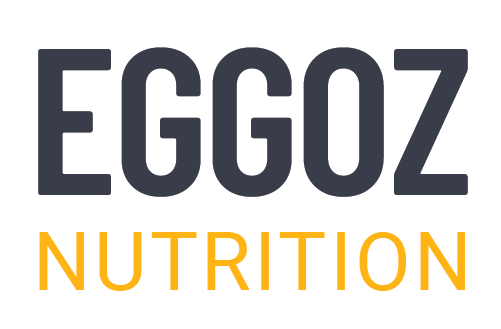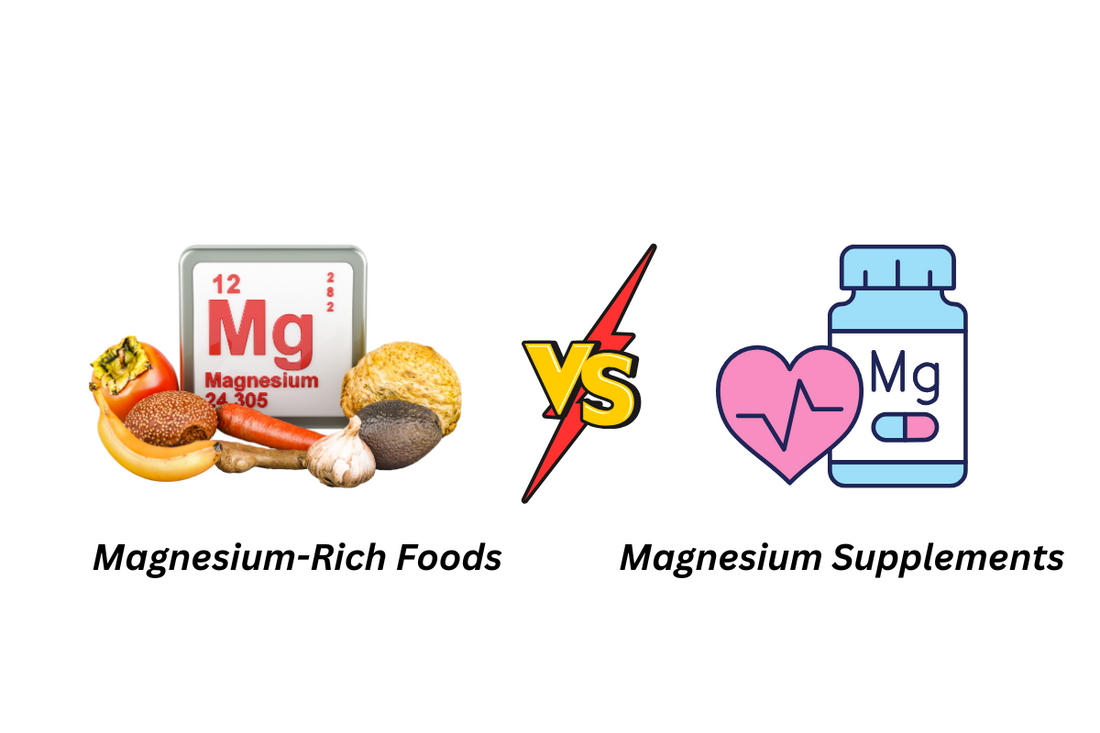Magnesium is needed for several physiological actions that maintain health. Magnesium is involved in several metabolic activities, including muscular action, neuronal signalling, and energy production. The necessity of magnesium is often neglected, causing individuals to have deficits. One can meet daily magnesium demands with magnesium meals or supplements. This article discusses magnesium's importance, deficiency symptoms, food vs. supplement comparisons, and natural magnesium-boosting foods.
The Body Needs Magnesium
Magnesium is essential for energy production, muscular function, heart health, and bone density. Magnesium helps us move and stay energised by turning food into energy. Athletes and active people need it for muscle contraction and relaxation. Magnesium calms anxiety and depression by regulating neurone function and neurotransmitter activity. Magnesium also regulates heartbeat and blood pressure, lowering cardiovascular disease risk.
Required Magnesium Daily
Dietary magnesium needs vary by age, gender, and life stage. RDAs for males and women are 400-420 mg and 310-320 mg, respectively. To boost foetal growth, pregnant women may need 350-360 mg daily. Children and teenagers have growing needs. A balanced magnesium-rich diet of leafy greens, nuts, seeds, whole grains, and seafood can meet these needs for most people. Higher requirements or specific health problems may require supplements to ensure proper intake.
Low-Magnesium Symptoms:
Muscle cramps: Insufficiency of magnesium causes leg cramps and spasms. Lack of magnesium relaxes muscles, causing involuntary spasms that interrupt sleep and exercise.
Fatigue and Weakness: Insufficient magnesium causes fatigue and muscle weakness. Magnesium deficiencies, which prevent ATP production, might make daily tasks harder.
Mental Health Issues: Minimal magnesium might affect mood and mental health. Irritation, anxiety, and sadness may result from low quantities. Brain neurotransmitters are affected by low magnesium, impacting mental clarity and emotional stability.
Uneven Heartbeat: An irregular pulse and pulses might result from magnesium deficiency. This is concerning because magnesium is needed for heart contractions and circulatory function.
Health Issues Bone: Low magnesium levels weaken bones and increase fracture risk because magnesium supports bone density and calcium absorption. The skeleton can deteriorate with low magnesium, especially in older people.
Magnesium Food vs. Supplements: Key Differences
When it comes to choosing between foods containing magnesium and magnesium supplements, there are several differences to consider:
|
Aspect |
Magnesium Foods |
Magnesium Supplements |
|
Bioavailability |
Magnesium from food sources is often better absorbed due like fibre, vitamins, and minerals that support digestion. |
Supplements vary in bioavailability depending on the form. Magnesium citrate, for example, is more readily absorbed than magnesium oxide. |
|
Nutrient Profile |
Foods rich in magnesium, like leafy greens and nuts, also contain additional beneficial nutrients, such as fibre, antioxidants, and essential vitamins. |
Supplements contain pure magnesium, and unless it’s a multivitamin, they don’t offer other nutrients that support holistic health. |
|
Cost |
A balanced diet with magnesium foods can be more cost-effective over time, as these foods also provide a range of other nutrients and health benefits. |
The cost of supplements varies widely. High-quality supplements may be expensive, though they offer a convenient magnesium source. |
|
Risk of Overdose |
Consuming magnesium from food generally doesn’t lead to overdose, as the body can naturally regulate and absorb the necessary amount from the diet. |
Supplements increase the risk of exceeding the recommended daily intake, which can cause side effects like diarrhoea and stomach upset. |
Five High-Magnesium Foods
Eat a variety of magnesium-rich foods to maintain appropriate magnesium levels. Five healthful, easy-to-eat magnesium-rich foods:
Spinach: A magnesium powerhouse, spinach is one of the top magnesium foods. One cup of boiled spinach has 157 milligrammes of magnesium, half the daily amount. Calcium, potassium, magnesium, iron, vitamin A, C, and K are in spinach. Spinach provides nutrients for the immune system, skin, and eyes. Spinach is versatile and usable in many cuisines. Mix it into smoothies, salads, spaghetti, and soups.
Almonds: Consuming magnesium with almonds is easy and tasty. In an ounce of almonds (23 almonds), 80 mg of magnesium is 20% of the daily recommended requirement. Aside from magnesium, almonds contain vitamin E, protein, fibre, and heart-healthy monounsaturated fats that lower cholesterol.
Eggs: A staple in many diets, eggs contain magnesium and other nutrients. Each large egg contains 5-6 milligrammes of magnesium, a scarce mineral. Eggs are nutritious because they contain protein, good fats, B vitamins, and brain-boosting choline. Eggs are versatile for breakfast, lunch, and dinner. Scrambled, poached, boiled, or omelette eggs provide magnesium and other minerals quickly. They go with fried rice, salads, and baking. A magnesium-rich egg diet improves satiety and nutrient diversity, keeping you full and invigorated all day.
Dark Cocoa: Dark chocolate with 70% cocoa or more is a surprising amount of magnesium and a tasty way to get it. Magnesium is 64 milligrammes per ounce of dark chocolate. Along with magnesium, dark chocolate contains antioxidants, notably flavonoids, which promote heart health, inflammation, and cognitive function. For the best benefits, choose dark chocolate with high cocoa content and low sugar. Dark chocolate can be eaten alone or added to fruit smoothies, yoghurt and muesli.
Avacado: Avocados are rich in magnesium and recognised for their creamy texture and heart-healthy lipids. Fibre, potassium, vitamin K, and 58 mg of magnesium are in a medium avocado. Avocado fats, especially monounsaturated fats, assist absorb fat-soluble vitamins and improve cardiovascular health.
Consuming mg-rich foods like spinach, almonds, eggs, dark chocolate, and avocados meets your magnesium needs and provides other nutrients.
Conclusion
Consuming manganese-rich foods like spinach, almonds, eggs, and dark chocolate provides fibre, vitamins, and antioxidants in addition to magnesium. Magnesium-rich foods such as eggoz eggs provide a holistic way to meet daily requirements, as they come with other essential nutrients that support magnesium absorption and offer additional health benefits. Supplements can help folks who can't obtain enough magnesium from meals. Health and well-being can be achieved by balancing magnesium intake with diet and supplementation.


